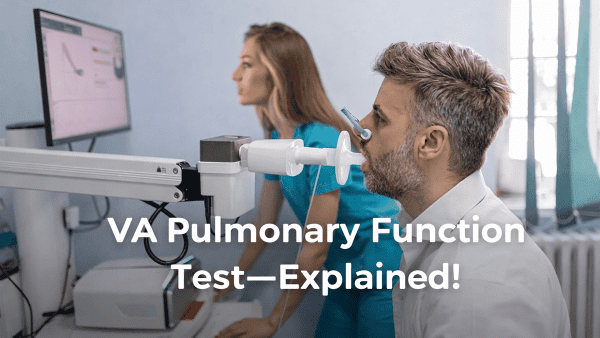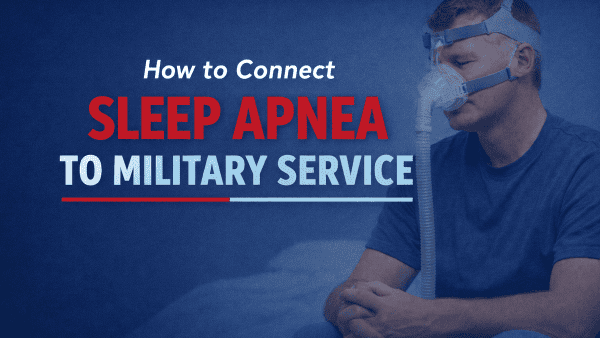Looking for Expert-Level VA Claim Answers?📱Call Us Now! 737-295-2226
Schizophrenia is a serious mental health condition that can affect every part of a veteran’s life—from holding a job to maintaining relationships to handling daily responsibilities. If you’re a veteran living with schizophrenia, you may qualify for VA disability compensation.
In this guide, we’ll explain how to qualify for a schizophrenia VA rating, how the VA assigns percentages from 0% to 100%, and what evidence you’ll need to service-connect your condition.
We’ll also cover related mental health considerations and the steps to filing a strong VA claim.
Table of Contents
Summary of Key Points
- Schizophrenia is rated at 0%, 10%, 30%, 50%, 70%, and 100%, depending on the severity of symptoms and other factors.
- Veterans looking to apply for service-connected schizophrenia disability can benefit from understanding how the VA claims process works.
- To receive VA compensation for schizophrenia, you must show that your symptoms were either caused or worsened by your military service (i.e., service connection).

What is Schizophrenia?
Schizophrenia is a serious mental health disorder that affects how a person thinks, feels, and behaves. It often causes delusions, hallucinations, disorganized thoughts, and difficulty managing daily life. The condition usually appears in early adulthood and often requires lifelong treatment.
Symptoms
Mental health disorders, such as schizophrenia, affect a person’s mind, emotions, and behaviors. Schizophrenia involves various types of hallucinations (e.g., hearing or seeing things that aren’t there [audible and visual], and tactile [i.e., sense of touch] sensations that don’t exist), as well as disorganized thoughts and behavior, poor thinking and processing skills, and social challenges. Other common symptoms may include:
- Delusions (e.g., falsely believing someone wants to cause you harm)
- Disorganized speech (e.g., shifting between unrelated topics)
- Disorganized behavior (e.g., laughing inappropriately, talking to oneself)
- Strange use of words or odd way of speaking
- Negative symptoms (e.g., an inability to express emotions)
- Social withdrawal
- Hostility or suspiciousness
- Inappropriate emotions
- Trouble concentrating
- Depression
Schizophrenia and VA Disability
Schizophrenia is often misunderstood by healthcare providers; therefore, it’s essential to understand how the VA disability claims process works and how a schizophrenia VA rating is assessed.
Schizophrenia symptoms can significantly impact a veteran’s daily life, making it difficult to maintain employment, relationships, and overall quality of life.
Genetics, environment, and brain chemistry are thought to play a role in the cause of schizophrenia, but the exact cause is unknown. Schizophrenia is often diagnosed in late adolescence or early adulthood.
Schizophrenia can cause you to lose sight of reality, which can make daily living extremely difficult. If you are diagnosed with schizophrenia, you will need lifelong treatment such as medication, assistance with managing activities of daily living, and often talk therapy.
Many people know that serving in combat situations may lead to long-term trauma. Trauma changes the brain chemistry, which can act as a prelude to mental health conditions such as schizophrenia.
Whether you served in combat or participated in training missions aimed at simulating battle stress and trauma triggers often occur. Consequently, if you suffer from schizophrenia, you may be eligible for VA compensation even if you didn’t serve in combat.
Schizophrenia VA Ratings
A schizophrenia VA rating (Diagnostic Code 9201) is rated from 0% to 100%, depending on the severity of symptoms and the impact on your ability to work and interact socially, according to the General Rating Formula for Mental Disorders.
Schizophrenia VA Rating Table
| Symptoms | VA Rating |
| A mental condition has been formally diagnosed, but symptoms are not severe enough either to interfere with occupational and social functioning or to require continuous medication. | 0% |
| Occupational and social impairment due to mild or transient symptoms which decrease work efficiency and ability to perform occupational tasks only during periods of significant stress, or symptoms controlled by continuous medication. | 10% |
| Occupational and social impairment with occasional decrease in work efficiency and intermittent periods of inability to perform occupational tasks (although generally functioning satisfactorily, with routine behavior, self-care, and conversation normal), due to such symptoms as: depressed mood, anxiety, suspiciousness, panic attacks (weekly or less often), chronic sleep impairment, mild memory loss (such as forgetting names, directions, recent events). | 30% |
| Occupational and social impairment with reduced reliability and productivity due to such symptoms as: flattened affect; circumstantial, circumlocutory, or stereotyped speech; panic attacks more than once a week; difficulty in understanding complex commands; impairment of short- and long-term memory (e.g., retention of only highly learned material, forgetting to complete tasks); impaired judgment; impaired abstract thinking; disturbances of motivation and mood; difficulty in establishing and maintaining effective work and social relationships. | 50% |
| Occupational and social impairment, with deficiencies in most areas, such as work, school, family relations, judgment, thinking, or mood, due to such symptoms as: suicidal ideation; obsessional rituals which interfere with routine activities; speech intermittently illogical, obscure, or irrelevant; near-continuous panic or depression affecting the ability to function independently, appropriately and effectively; impaired impulse control (such as unprovoked irritability with periods of violence); spatial disorientation; neglect of personal appearance and hygiene; difficulty in adapting to stressful circumstances (including work or a worklike setting); inability to establish and maintain effective relationships. | 70% |
| Total occupational and social impairment due to such symptoms as: gross impairment in thought processes or communication; persistent delusions or hallucinations; grossly inappropriate behavior; persistent danger of hurting self or others; intermittent inability to perform activities of daily living (including maintenance of minimal personal hygiene); disorientation to time or place; memory loss for names of close relatives, own occupation, or own name. | 100% |
Establishing Service Connection
To receive a schizophrenia VA rating, you must prove service connection. Proving service connection requires satisfying all three parts of the Caluza Triangle:
1. A Current Medical Diagnosis of a Disability Condition
2. Evidence of an In-Service Event, Injury, Disease, or Aggravation
3. Nexus (the link between #1 and #2) via Competent Medical Evidence
Relevant Medical Evidence to Support Your Claim
You must show that your schizophrenia either began or its symptoms were worsened due to your military service. Providing the VA with relevant medical evidence can help to strengthen your VA disability claim. This can include:
- A current schizophrenia diagnosis performed by a licensed mental health professional.
- Relevant medical records, including your schizophrenia diagnoses, any treatment received, and medical records’ documentation that links your condition to your military service and shows your condition started during or shortly after your military service
- Personal statements from friends, colleagues, or family members that describe your symptoms and their relationship to your military service
- Documented incidents of thinking and behavior that align with the symptoms of schizophrenia
Note: If you haven’t been diagnosed with schizophrenia yet, it may take time for mental health providers to identify your condition; this is because schizophrenia is diagnosed by ruling out other possible conditions using a series of tests and exams.
How to File a VA Claim
As soon as you receive your current diagnosis, medical records, and other documentation, you can begin the process of filing your schizophrenia VA disability claim. Items that strengthen your claim include:
- Relevant service records
- Quality medical evidence (e.g., a medical diagnosis, psychological testing results, a nexus letter*)
*A nexus letter is a document written by a licensed healthcare provider, used to support your VA schizophrenia disability claim. The letter should include detailed information on your current diagnosis (including how your symptoms impact your quality of life, particularly noting whether symptoms make it impossible for you to maintain meaningful employment.
You can file your claim online, via mail or fax, or in person at your local VA center. If you don’t file your claim online, you’ll need to download and complete the VA Form 21-526EZ.
Related: How to File a VA Claim Online
Schizophrenia and Other Mental Health Conditions
Mental health conditions commonly occur as “comorbid disorders,” meaning that a person has two or more medical or mental health conditions at the same time. The conditions exist together, and often they interact in ways that make each one harder to manage.
Comorbid disorders don’t have to be directly caused by each other, but they often overlap and complicate treatment, since addressing one condition without the other may not fully improve a person’s health.
Mental Health VA Ratings
Schizophrenia is commonly found to cause other disorders, such as anxiety and depression.
Unfortunately, the VA will only allow veterans to receive disability benefits for one mental health condition at a time. If you have schizophrenia and an anxiety disorder, you will not receive two separate ratings—like in other medical diagnoses — rather, you will be awarded the highest rating of the two. For example, if you receive a 50% schizophrenia VA rating and a 30% rating for anxiety, your combined rating would be 50%.
Learn more about VA mental health ratings, such as mental health conditions that qualify for VA ratings, here.
Related: Mental Health VA Rating Changes
Conclusion
Schizophrenia can feel overwhelming, but the VA recognizes it as a disabling condition and provides ratings from 0% to 100% under Diagnostic Code 9201. To qualify, you’ll need a current medical diagnosis, evidence of an in-service event, and a nexus linking your condition to military service.
The most important factor in winning your claim is strong medical evidence. Detailed documentation, personal statements, and a well-written nexus letter can make the difference between a denial and the benefits you deserve.
If your schizophrenia prevents you from working, you may also qualify for Total Disability Individual Unemployability (TDIU), which pays at the 100% rate even if your schedular rating is lower.
Your service matters, and so does your claim. Don’t give up if you’ve been denied before. With the right strategy and evidence, you can move closer to securing the schizophrenia VA rating and benefits you’ve earned.
Want Expert-Level VA Disability Claim Help? WE GOT YOUR SIX!
- VA Claims Insider is the #1 most trusted name in VA disability claims.
- Work directly with a VA claims coach who can educate you through the claims process..
- 25,000+ disabled veterans served in our membership programs since 2016.
- 30% average rating increase for veterans who complete our #1 rated Elite program.
- 4.7/5.0 average rating out of 5,500+ total reviews; over 4,500 5-star reviews.
FAQs | Frequently Asked Questions
How does the VA rate schizophrenia?
A schizophrenia VA rating can range from 0% to 100%, depending on the severity of your symptoms and their impact on your social functioning and ability to work. A 0% schizophrenia VA rating indicates a diagnosis of schizophrenia, with symptoms that are not severe enough to interfere with social or occupational functioning and don’t require continuous medication. A 100% schizophrenia VA rating means you are totally disabled as a result of severe schizophrenia symptoms.
Can schizophrenia be considered service-connected?
Yes, schizophrenia can be service-connected if you can show that your military service caused or exacerbated (worsened) your condition.
Can I join the military with schizophrenia?
No, you cannot join the military with schizophrenia. The Department of Defense prohibits anyone diagnosed with a mental health condition, such as schizophrenia, from serving in any branch of the U.S. military.
What are the ADLs in schizophrenia?
People with schizophrenia often have trouble with ADLs (activities of daily living) and need help completing activities that range from dressing and bathing to managing finances, taking medication, cooking, and more. These activities are called ADLs.
Author

Sherry Christiansen
Sherry Christiansen is a professional Medical Writer with a clinical mental health background. Over the last decade, she has written health and wellness articles for organizations like Medical News Today, Verywell Health, and Healthline. In 2013, she also helped launch an educational website for the first Alzheimer’s prevention clinic in the country at Weill Cornell Medical Center – NewYork-Presbyterian. As a spouse of a career military service member, Sherry is deeply passionate about supporting veterans. It is an honor for her to assist veterans in receiving the benefits they deserve after becoming ill or injured while serving our country.



